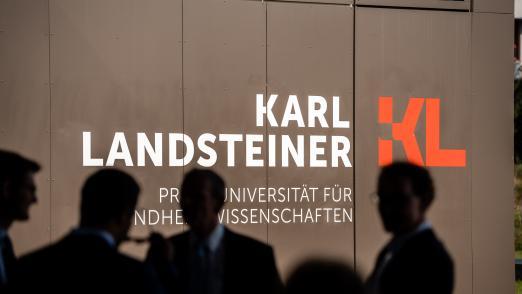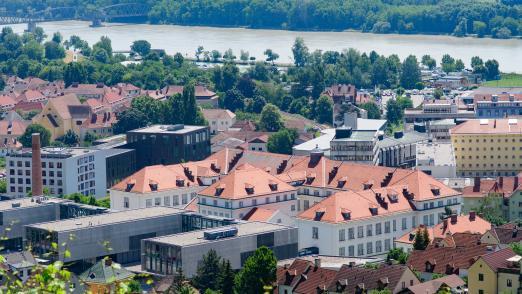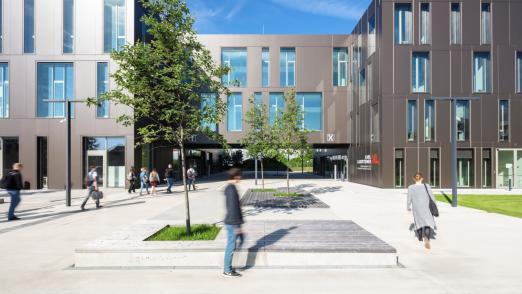
Scientific organisational units
Internationally recognised translational research and quality-assured, research-based teaching are the hallmarks of Karl Landsteiner University of Health Sciences (KL). This is ensured in our scientific departments, our research groups and by lecturers from the field.
Department General Health Studies
The Department General Health Studies focuses on future-oriented research fields in the health sciences, including gerontology and research into ageing.
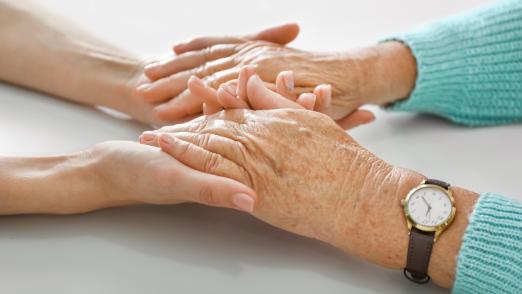
Division of Nursing Science with focus on Person-Centred Care Research
Person-Centred Care Research focuses on knowledge production from the perspectives of care recipients and their relatives/families as well as caregivers/practitioners in the respective health care setting.
Read more
Division of Gerontology and Health Research
The Competence Centre Gerontology and Health Research is a multidisciplinary institution and is funded by the Lower Austrian Health and Social Fund (NÖGUS). The competence centre develops scientific foundations and findings for healthy ageing and a good quality of life in the life phase of old age.
Read more
Division of General and Family Medicine
General and family medicine is a separate speciality with specific tasks and a specific way of working. It is the speciality of generalists who focus on people in their entirety.
Read more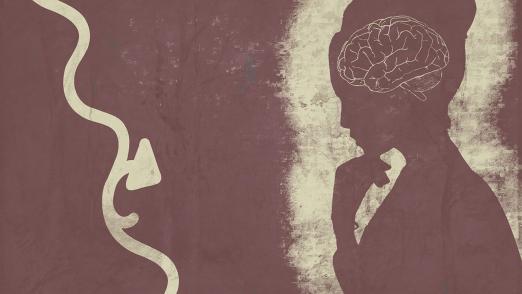
Division Biomedical and Public Health Ethics
The research of the division focusses mainly on the scientific analysis of ethical issues linked to the digital transformation of the healthcare sector. The public health perspective is crucial in this regard, which makes social determinants of healthcare the focus of research at the division.
Read more
Division of Biostatistics and Data Science
In the field of medicine, more than in any other discipline, the answering of scientific questions is linked to a well-founded evaluation of observed effects and the proof of possible evidence. This determines forms of therapy, appropriate interventions and, ultimately, the state of health of patients.
Read moreDepartment Pharmacology, Physiology and Microbiology
At this department, researchers work at the interface of pharmacology, physiology and microbiology, including a special focus on water quality and health.

Division of Pharmacology
The Division Pharmacology studies the interaction of endogenous and exogenous components within biological systems. On the one hand, we are interested in basic research with the focus on molecular mechanisms responsible for the development of cancer, mainly acute myeloid leukemia (AML) and lymphoma. On the other hand, we aim to use these findings to support and develop new approaches for diagnosis, prognosis and therapy of human cancers.
Read more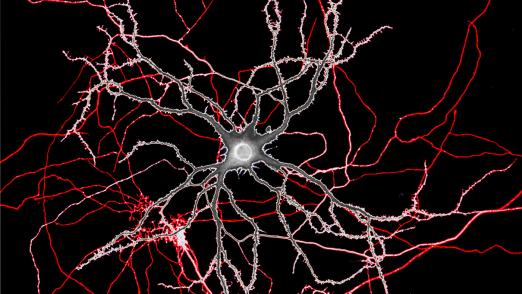
Division of Physiology
Physiology combines various natural science subjects to study the vital activity of the entire organism and individual systems, organs, cells and cell structures. Together with anatomy and histology, physiology thus provides us with the theoretical basis for understanding how our body functions and how it adapts to environmental influences.
Read more
Division of Waterquality and Health
The Division of Water Quality and Health is focused on health-related microbiological-hygienic water quality. The focus is on the development and application of pioneering methods for analyzing water quality in natural and technical systems.
Read moreDepartment Anatomy and Biomechanics
The Department of Anatomy and Biomechanics works on medical engineering research topics spanning anatomy, developmental biology and biomedical engineering.
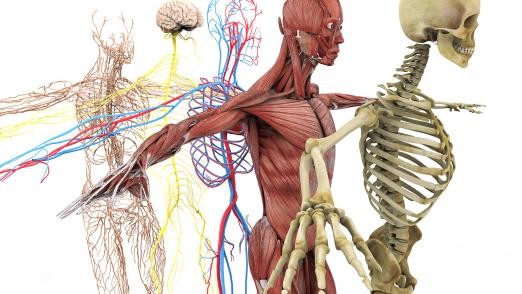
Division of Anatomy and Developmental Biology
Anatomy (the study of the structure of the healthy organism) is the basis for understanding organ functions, for diagnosing pathological changes and for invasive treatment methods. The department aims to provide basic training for students as well as further training for doctors with regard to innovative treatment methods.
Read more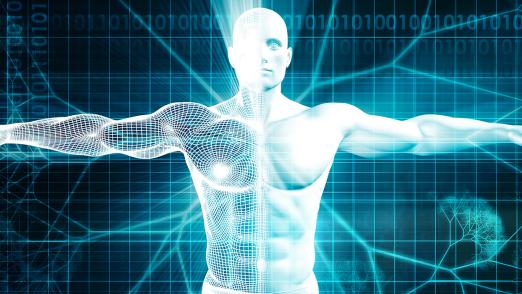
Division of Biomechanics
The Department of Biomechanics puts engineering sciences at the service of human health. We conduct research in the areas of prevention, treatment and aftercare of musculoskeletal disorders. We see ourselves as a connecting element between research institutions, clinics and companies.
Read moreDepartment Psychology and Psychodynamics
This department focuses on research topics in the fields of psychology and psychodynamics.
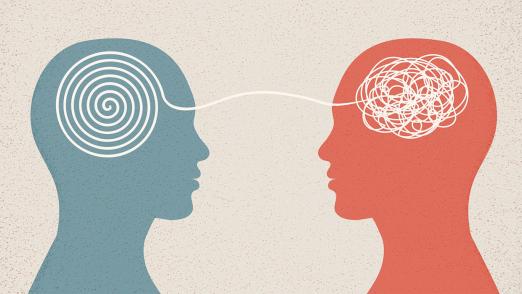
Division of Clinical Psychology
As a subdiscipline of psychology, clinical psychology deals with the biological, social, developmental, behavioral, cognitive, and emotional bases and effects of mental disorders and other illnesses that affect people's experience and behavior.
Read more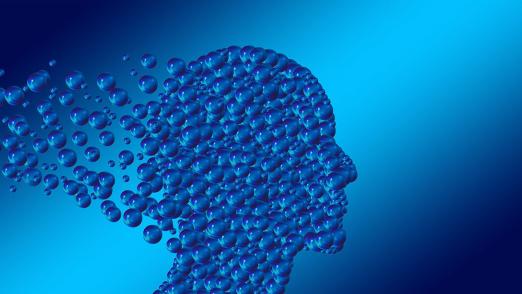
Division of Work, Organizational, and Economic Psychology
The field of work and organizational psychology provides evidence-informed knowledge on people, work and organizations. Its purpose is to improve organizations and management practice, as well as to inform and promote the design of decent and meaningful work.
Read more
Division Psychodynamics
A main field of the University Professorship of Psychotherapy Research as well as the Department of Psychodynamics at KL is devoted to the dynamic and complex models of subjectivity and mental life that emerge from the interplay of conscious and non-conscious parts.
Read more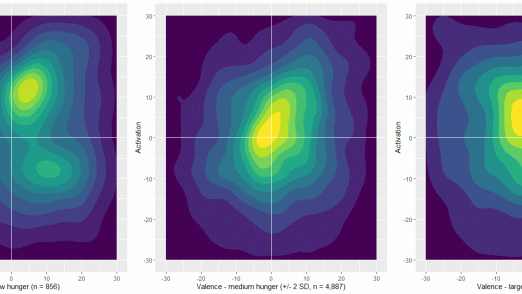
Division of Psychological Methodology
The Division of Psychological Methodology is dedicated to new research methods that have emerged and will emerge as a result of the development of the computer and the introduction of the Internet.
Read moreDepartment General and Translational Oncology and Haematology
The Department of General and Translational Oncology and Haematology is dedicated to future-oriented areas of research in the field of oncology.
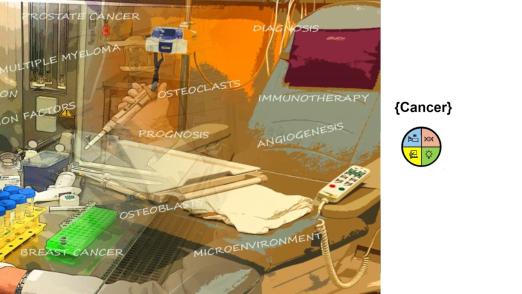
Division of Molecular Oncology and Hematology
The Division of Molecular Oncology and Hematology performs landmark bench-to-bedside research to improve the lives of tumor patients through innovative diagnostics, prognostics and individualized cancer therapies.
Read more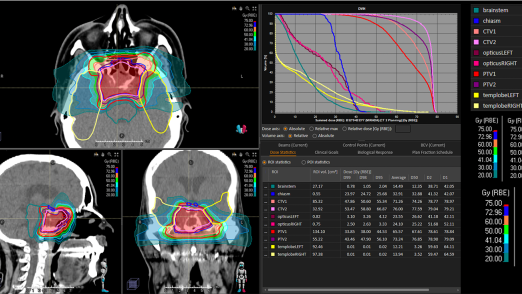
Division Radiation Oncology
The aim of the division Radiation Oncology with an emphasis on particle therapy is to optimize patients’ treatment with radiotherapy by applying the best standards of care and by performing clinical research and fostering the translation of preclinical research in a clinical setting.
Read more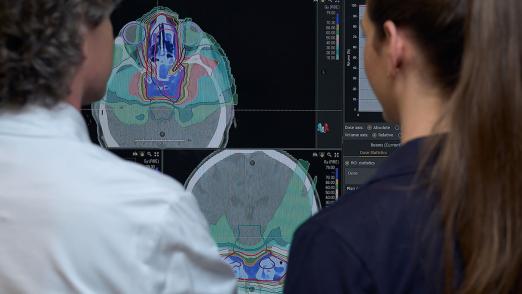
Division Medical Physics
The Division Medical Physics with an emphasis on particle therapy aims to optimize Particle Therapy on the basis of new developments in medical radiation physics. Approaches are aligned within the Department and can be dosimetry/microdosimetry, MC simulations, big data, treatment plan optimization, software development, process management.
Read moreScientific working groups and research centres
Within the framework of our priorities, scientific working groups associated with the KL make valuable contributions to the interdisciplinary ethos of the university. The spatial proximity of the KL allows exchange between a wide range of different disciplines.
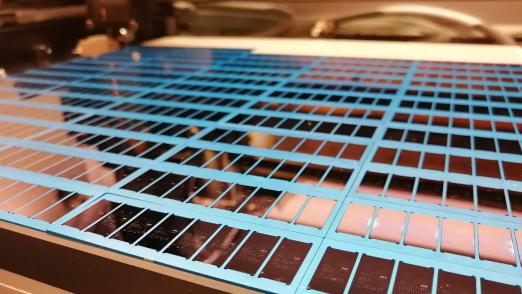
Allergology & Immunology
With the Scientific Working Group Allergology and Immunology and the lead project Danube Allergy Research Cluster (Danube ARC), a center of excellence for allergy research in Lower Austria is being established at the Karl Landsteiner University of Health Sciences, which is dedicated to research into new methods of diagnosis, treatment and prevention of allergic diseases.
Read more
Transitional Psychiatry
The Transition Psychiatry Research Center at Karl Landsteiner University of Health Sciences is focusing on the mental health of young people in close cooperation with Tulln University Hospital.
Read moreUniversity Hospitals
KL has a total of 23 university hospitals and clinics. Located at three hospital sites, they care for patients as well as providing as training facilities.
Locations of the KL
Krems University Hospital
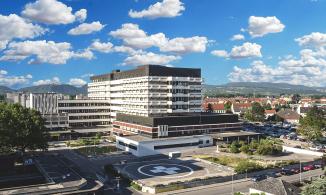
With its twelve clinical departments and five clinical institutes, the University Hospital (UK) Krems is an important regional and supraregional healthcare institution.
University Hospital St. Pölten
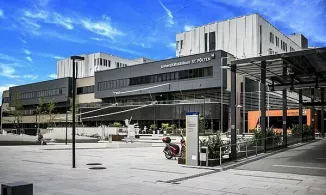
The University Hospital (UK) St. Pölten stands for cutting-edge medicine in Lower Austria. As a reference centre with a broad medical spectrum and a pronounced supra-regional character, it offers maximum care for sick people.
University Hospital Tulln
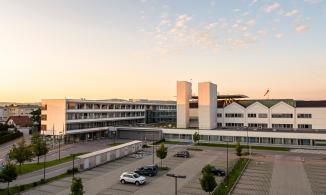
The University Hospital (UK) Tulln is a regional primary care hospital with a supra-regional care mandate that offers medical and nursing services at the highest level.
PSZW Eggenburg

The PSZW Eggenburg is an Austrian competence centre for psychosomatics, health sciences and psychotherapy. The range of services includes the diagnosis and treatment of mental and psychosomatic illnesses.
MedAustron
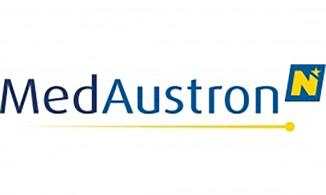
MedAustron is a cancer treatment and research centre located in Wiener Neustadt. It is unique throughout Austria and also one of only six comparable centres worldwide.
Krems University Hospital

With its twelve clinical departments and five clinical institutes, the University Hospital (UK) Krems is an important regional and supraregional healthcare institution.
University Hospital St. Pölten

The University Hospital (UK) St. Pölten stands for cutting-edge medicine in Lower Austria. As a reference centre with a broad medical spectrum and a pronounced supra-regional character, it offers maximum care for sick people.
University Hospital Tulln

The University Hospital (UK) Tulln is a regional primary care hospital with a supra-regional care mandate that offers medical and nursing services at the highest level.
PSZW Eggenburg

The PSZW Eggenburg is an Austrian competence centre for psychosomatics, health sciences and psychotherapy. The range of services includes the diagnosis and treatment of mental and psychosomatic illnesses.
MedAustron

MedAustron is a cancer treatment and research centre located in Wiener Neustadt. It is unique throughout Austria and also one of only six comparable centres worldwide.


